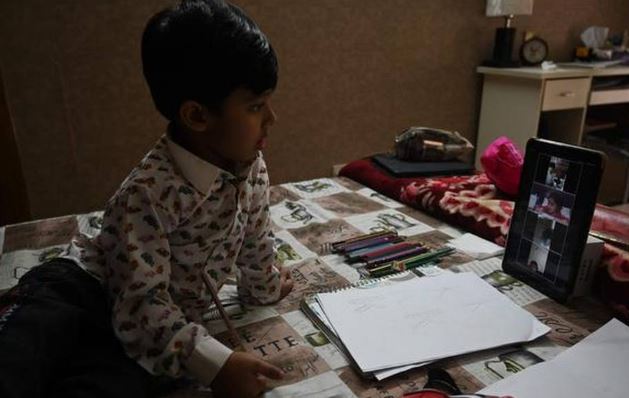Mahakalapada: In Odisha, there are more than 62 lakh students who study in government schools, if state government numbers are anything to go by. With the schools closed amid COVID-19 crisis, online education during this lockdown could have been an opportunity in the face adversity.
In many parts of the country, what has helped to promote e-classes is a robust infrastructure for mobile and internet connectivity as well as access to gadgets. Many areas, meanwhile, continue to lag behind – especially in rural parts of the country. Odisha’s Kendrapara being one of them.
While the state education department recently claimed to have initiated online teaching across Odisha, reality bites when it comes to rural areas where government schools form the core of education system.
A point in case being Baulakani panchyat under Mahakalapada block in Kendrapara district.
Without access to reliable internet connectivity and no access to computer or smartphones, many students are being deprived of their right to free education here.
Also Read: Governor Ganeshi Lal hospitalised, CM wishes speedy recovery
Most guardians in Baulakani claimed that they do not own smartphones to get their kids avail online education. Let alone smartphones, many have no money to recharge mobile SIM cards or purchase data packs.
Rakhal Swain from this panchyat is a BPL cardholder and owns no landed property. Maintaining a family of six during the lockdown is a tough ask for him. Expecting him to support studies for his two children using smartphones is almost cruel.
With no school to attend and no smartphone to attend online classes, it is being observed that many children in the panchayat are now engaged in agricultural work to help their parents financially.
With only seven months to go for the crucial matriculation examination for 2020-21 academic year, as many as 90 per cent students in the panchayat have not even started the first chapters of the six subjects in the syllabus.
With no help forthcoming, how they will manage to complete all the chapters in less than seven months is a matter of concern both for parents and students.
The enormity or the course and the difficulty to get affordable education are taking a toll on the mental health of the students. Besides, it is expected to do long-term damage by increasing the dropout rate.
When questioned about the issue, Kendrapara district education officer Sanjib Kumar Singh said he has sent a letter to his higher-ups for smooth operation of online education in rural areas of Kendrapara.
That said, how the education department and the state government manage to handle the issue in Kendrapara and beyond is yet to be seen.
PNN

